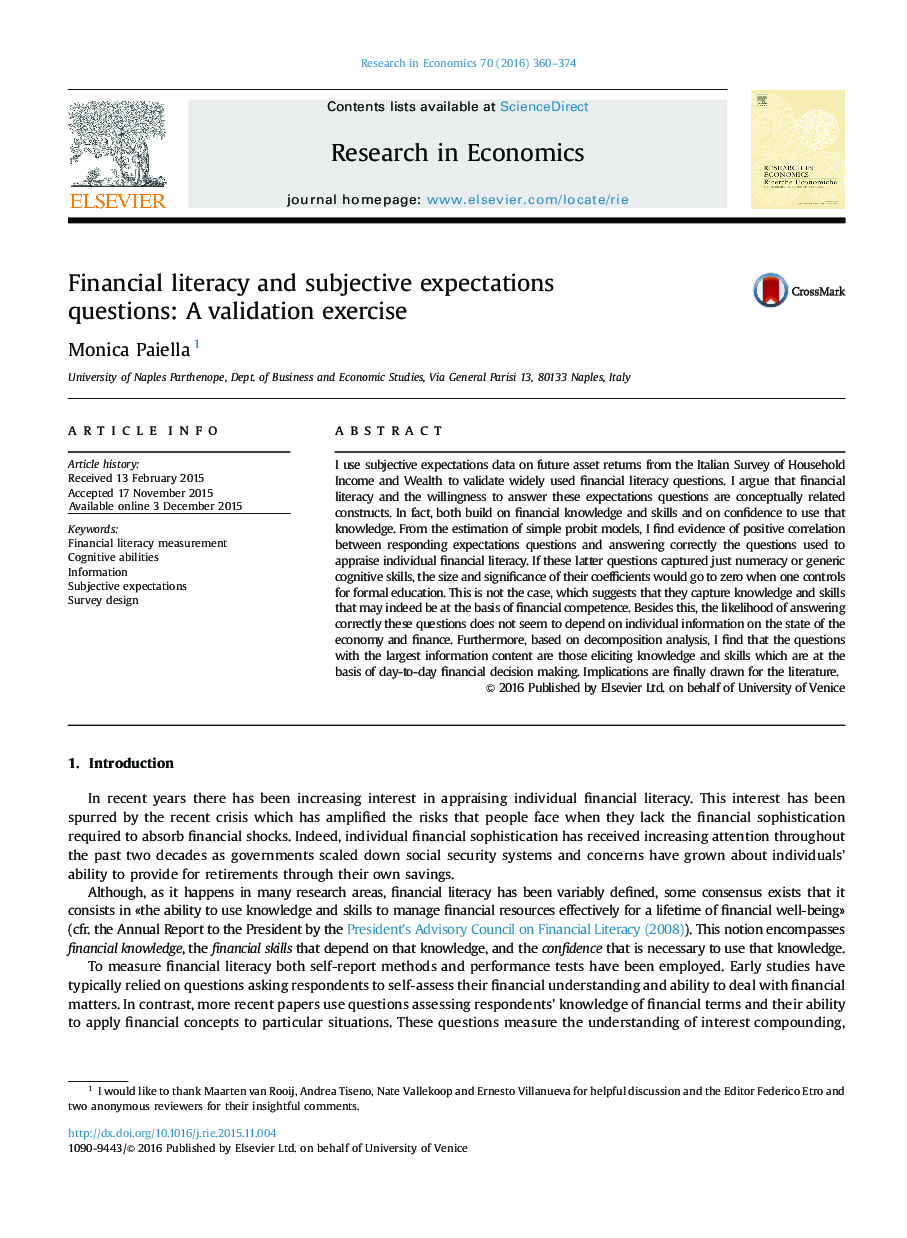| Article ID | Journal | Published Year | Pages | File Type |
|---|---|---|---|---|
| 984422 | Research in Economics | 2016 | 15 Pages |
•Financial literacy (FL) is a separate competence with respect to numeracy.•FL builds on financial knowledge and skills to use that knowledge.•Expectations questions may be used to validate FL questions.•FL questions capture financial competence and not individual financial information.•The most informative FL questions relate to day-to-day financial decisions.
I use subjective expectations data on future asset returns from the Italian Survey of Household Income and Wealth to validate widely used financial literacy questions. I argue that financial literacy and the willingness to answer these expectations questions are conceptually related constructs. In fact, both build on financial knowledge and skills and on confidence to use that knowledge. From the estimation of simple probit models, I find evidence of positive correlation between responding expectations questions and answering correctly the questions used to appraise individual financial literacy. If these latter questions captured just numeracy or generic cognitive skills, the size and significance of their coefficients would go to zero when one controls for formal education. This is not the case, which suggests that they capture knowledge and skills that may indeed be at the basis of financial competence. Besides this, the likelihood of answering correctly these questions does not seem to depend on individual information on the state of the economy and finance. Furthermore, based on decomposition analysis, I find that the questions with the largest information content are those eliciting knowledge and skills which are at the basis of day-to-day financial decision making. Implications are finally drawn for the literature.
